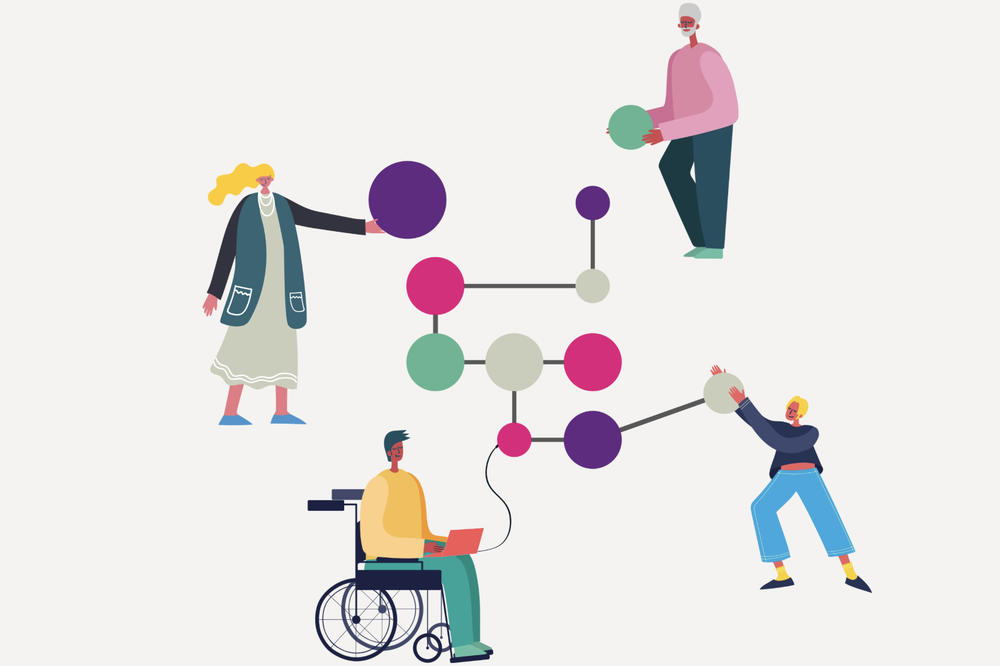Einstein Research Units
BUA Projects for an Integrated Research Area in Berlin
Scientists in the Einstein Research Units want to find answers to pressing contemporary issues by working in tailor-made interdisciplinary collaborative groups to address specific aspects of the issues. While funding as part of the Exploration Projects in the Grand Challenges on Social Cohesion and Global Health concentrates on the development of new topics and networks, the goal of the Einstein Research Units is to anchor the research topics in the university structures. The Einstein Foundation Berlin provides up to two million euros per year for these research units. The initial funding period is up to three years with an option to extend it for another two years. Through the Einstein Foundation Berlin the Berlin University Alliance, which is funded by the Excellence Strategy of the German federal and state governments, gains additional funds from the State of Berlin.
One Einstein Research Unit is currently being funded and two have been successfully completed. Additionally, the Einstein Foudation provides funding for the preparatory phase for the Einstein Research Unit Pathways to Inter- and Transdisciplinary Research in Global Health from October 1, 2023 to September 30, 2025.
Coping with Affective Polarization – How Civil Society Fosters Social Cohesion (10/1/24 - 09/31/27)
Spokespersons:
- Prof. Dr. Jule Specht (Humboldt-Universität zu Berlin)
- Prof. Dr. Hanna Schwander (Humboldt-Universität zu Berlin)
- Prof. Dr. Swen Hutter (Freie Universität Berlin)
- Prof. Dr. Christian von Scheve (Freie Universität Berlin)
Scientic Managing Director / Contact:
- Dr. Nadja-Raphaela Baer, Email: nadja-raphaela.baer@hu-berlin.de
Social polarization is the topic of the joint research project.
Image Credit: ERU Affective Polarization
The Einstein Research Unit Coping with Affective Polarisation – How Civil Society Fosters Social Cohesion is an interdisciplinary research network based in Berlin. Teams from Humboldt-Universität zu Berlin, Freie Universität Berlin, and Charité – Universitätsmedizin Berlin collaborate to examine the dynamics of affective polarisation and explore ways to mitigate its negative consequences. By means of empirical research and close cooperation with civil society actors, our Einstein Research Unit investigates the causes and effects of affective polarisation and its impact on social interactions, for instance. The overarching goal is to develop targeted strategies and interventions that empower individuals, groups, and civil society to engage constructively with affective polarisation. The research places particular emphasis on the role of civil society in strengthening social cohesion and fostering open, productive dialogue across political and social divides.
More information on the project's website.
Perspectives of a Quantum Digital Transformation: Near-term Quantum Computational Devices and Quantum Processors (01/01/2022 - 12/31/2024)
Chairpersons
- Prof. Dr. Jens Eisert (Chair), Freie Universität Berlin
- Prof. Dr. Çiğdem İşsever (Vice Chair), Humboldt-Universität zu Berlin
Principal Investigators
- Prof. Dr. Oliver Benson, Humboldt-Universität zu Berlin
- Dr. Anna Pappa, Technische Universität Berlin
- Prof. Dr. Arno Rauschenbeutel, Humboldt-Universität zu Berlin
- Prof. Dr. Stephan Reitzenstein, Technische Universität Berlin
- Dr. Tim Schröder, Humboldt-Universität zu Berlin,
- Prof. Dr. Jean-Pierre Seifert, Technische Universität Berlin
How can quantum computers revolutionize the computational power of computers? What new insights do quantum computers offer for high energy physics or quantum chemistry? These are the questions that the first Einstein Research Unit (ERU) of the Berlin University Alliance will address. The interdisciplinary research team of the Einstein Research Unit has set itself the task of clarifying the potential of the quantum digital transformation. This uniquely brings together expertise in theoretical and experimental physics, applied mathematics, computer science, and machine learning.
For more information, see the project website.
Climate and Water under Change (01/01/2022 - 12/31/2024)
Chairpersons
- Prof. Dr. Britta Tietjen (Chair), Freie Universität Berlin
- Prof. Dr. Jörg Niewöhner (Co-Chair), Humboldt-Universität zu Berlin
Other Members of the Executive Committee
- Prof. Dr. Dieter Scherer (Contact person for Case Study 1), Technische Universität Berlin
- Prof. Dr. Tobias Sauter (Contact person for Case Study 2), Humboldt-Universität zu Berlin
- Prof. Dr. Uwe Ulbrich (Contact person for Case Study 3), Freie Universität Berlin
- Prof. Dr. Birgit Kleinschmit, Technische Universität Berlin
The CliWaC consortium consists of 28 project leaders from Freie Universität Berlin, Humboldt-Universität zu Berlin, Technische Universität Berlin, and Charité. The Leibniz Centre for Agricultural Landscape Research ZALF and the Institute for Ecological Economy Research IÖW are external partners.
Water is a common resource. For this reason stakeholder groups from society are included in this research project.
Image Credit: Nina Diezemann
The Einstein Research Unit Climate and Water under Change (CliWaC) focuses on water-related risks under climate change in the Berlin-Brandenburg region. This research unit brings together social and natural science as well as practical expertise from stakeholders to support the governance of mitigation and adaptation measures in response to climate change.
For more information, see the project website.


